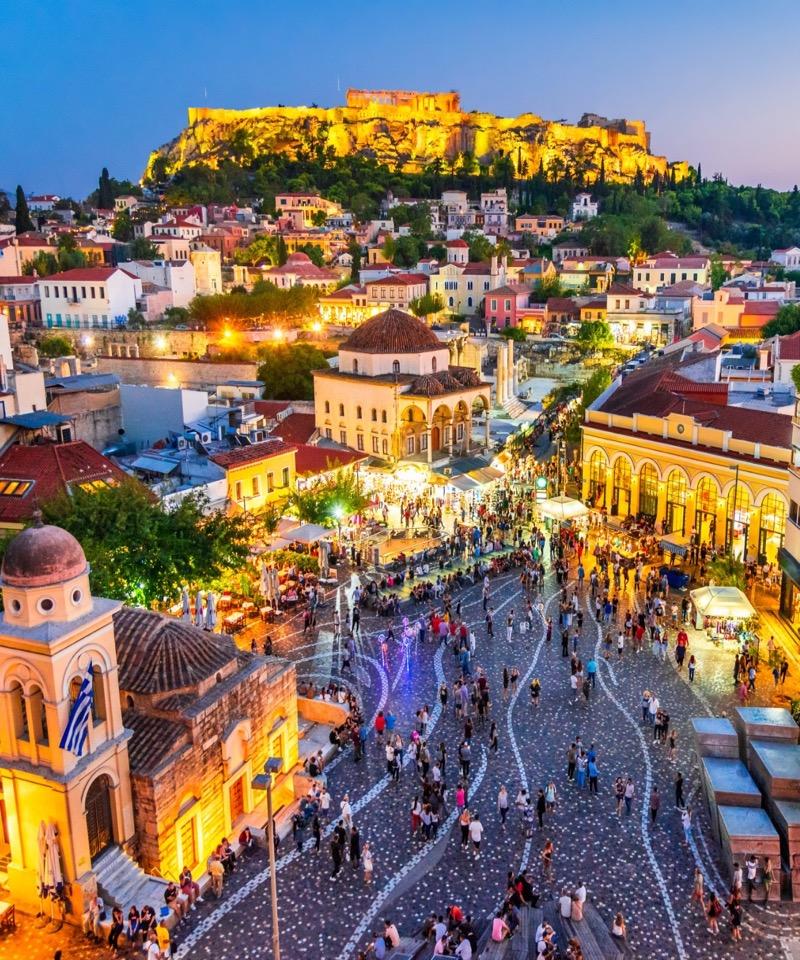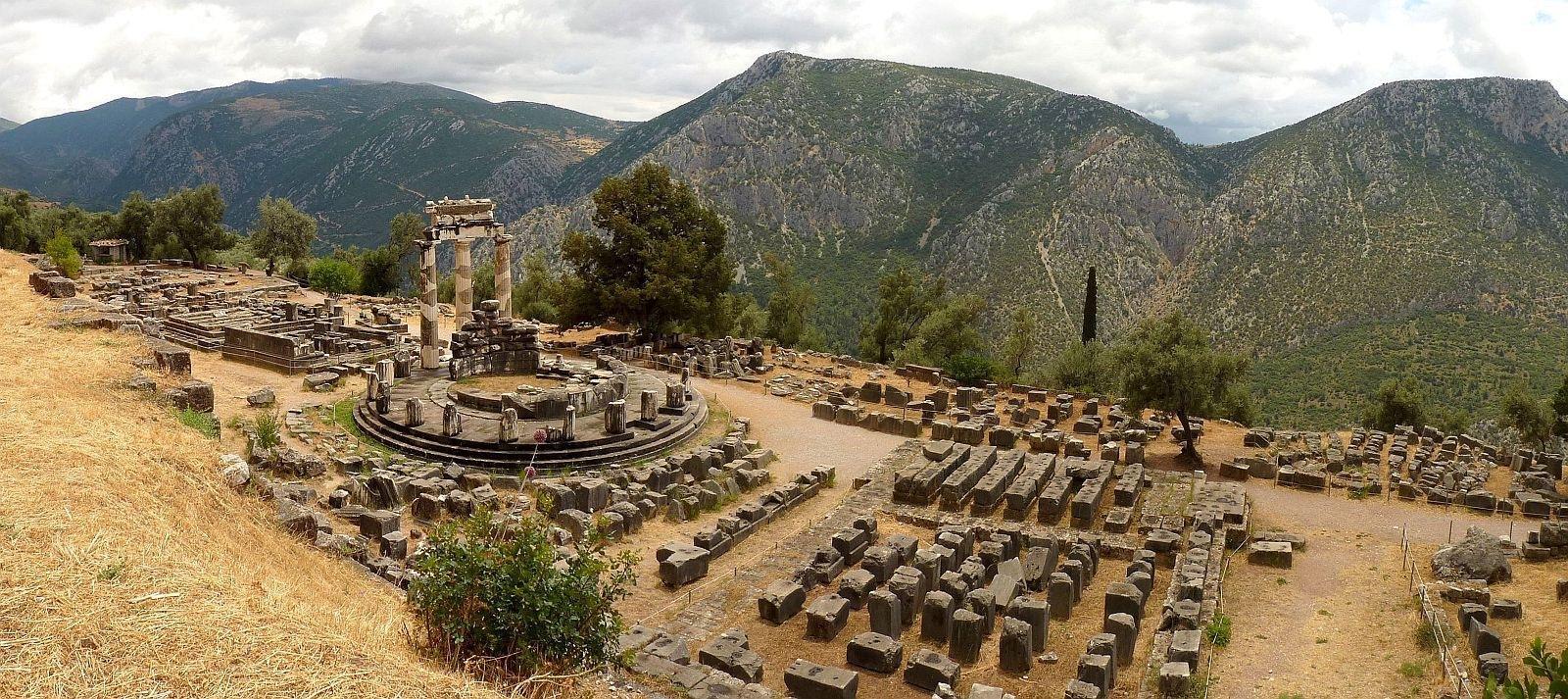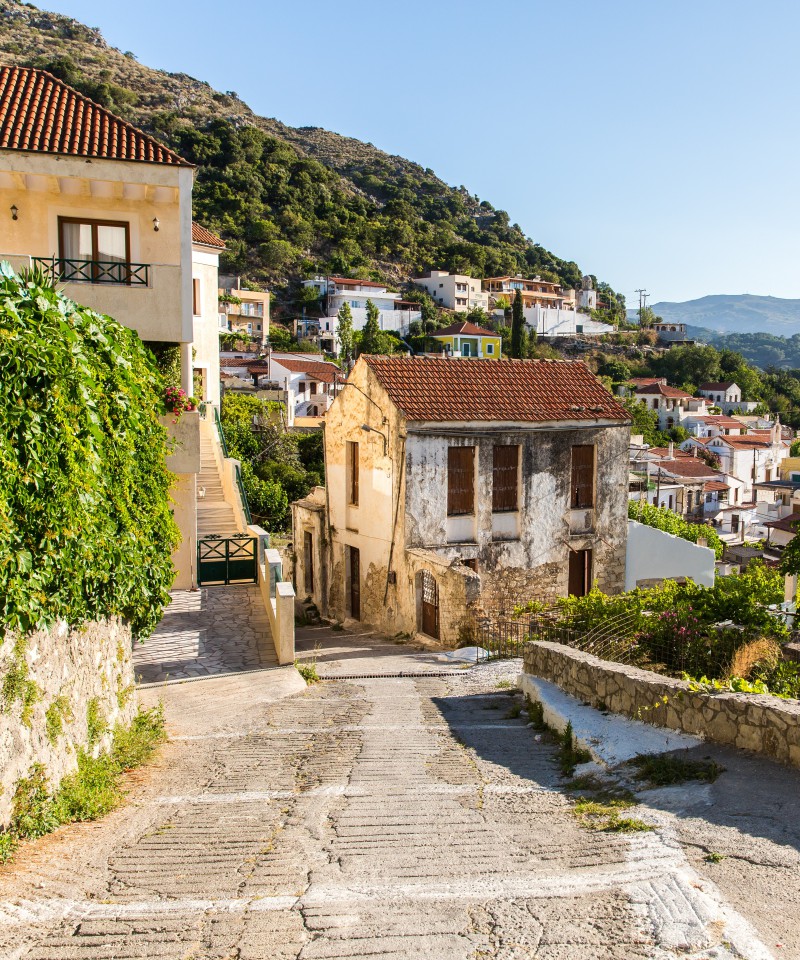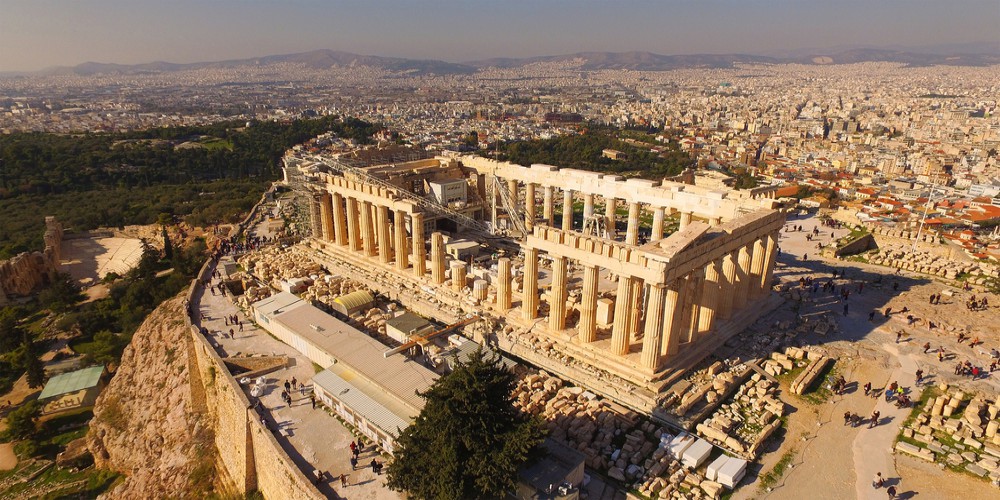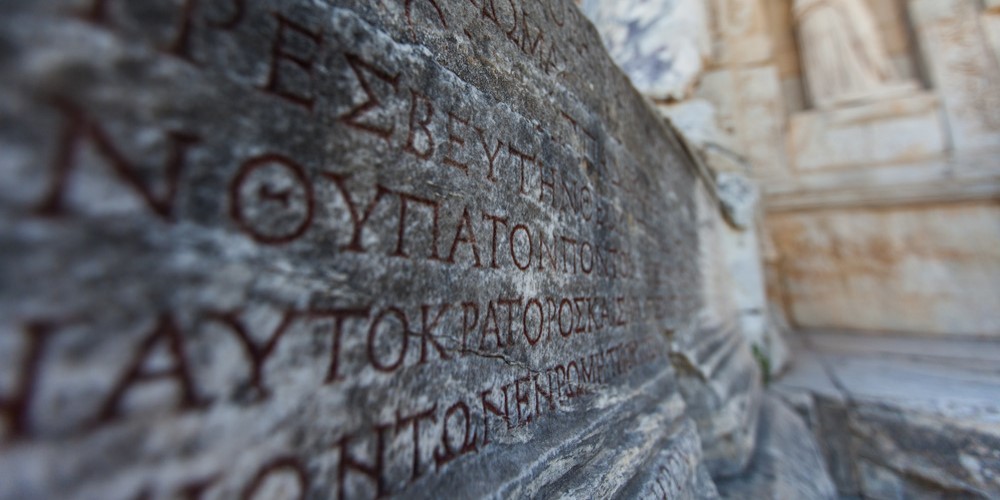
Biblical Places in Greece: Exploring Ancient Scriptural Sites
Key Takeaways
- There is a variety of biblical places in Greece worth your exploration.
- The Apostle Paul's missionary journeys show Greece's historical connection to Christianity.
- Sites such as Athens and Corinth are focal points for biblical pilgrimage and scholarly interest.
- Greek cultural and philosophical influences intersected with the formation of early Christian thought.
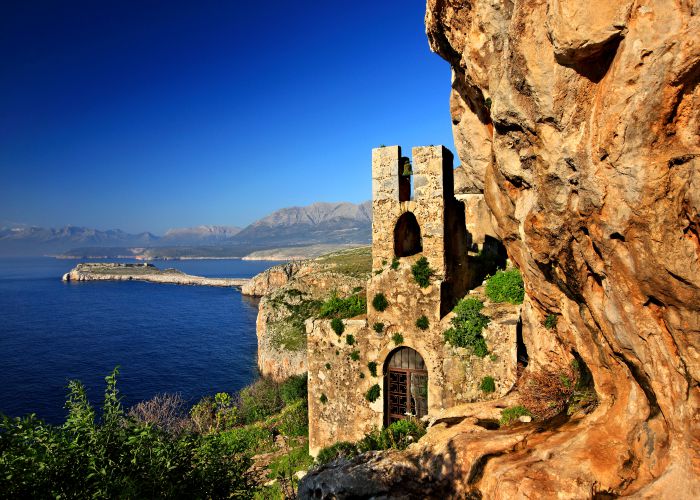
Greece, a country with a profound historical tapestry, also holds a significant place in the narrative of early Christianity.
It is intertwined with the travels and teachings of the Apostle Paul as recorded in the New Testament.
His journeys, which are foundational to Christian heritage, brought him through various regions of Greece, leaving behind a trail of sites that continue to draw pilgrims and historians alike.
The biblical account in the book of Acts details his missionary work, particularly in cities like Athens and Corinth, where he established early Christian communities.
The country's many ancient sites, like the city of Corinth where Paul spent considerable time, and Athens, with its Mars Hill where Paul is known to have preached, are significant for those interested in the roots of Christian faith.
Moreover, Greece's influence on early Christian thought is evident through the intersection of its rich philosophical heritage and the evolving theological discussions of Christianity.
For history enthusiasts and religious pilgrims, these sites offer tangible connections to the events that shaped Christian traditions.
Their preservation allows for a deeper understanding of the cultural context in which these pivotal moments of religious history took place.
The Role of Greece in the Bible
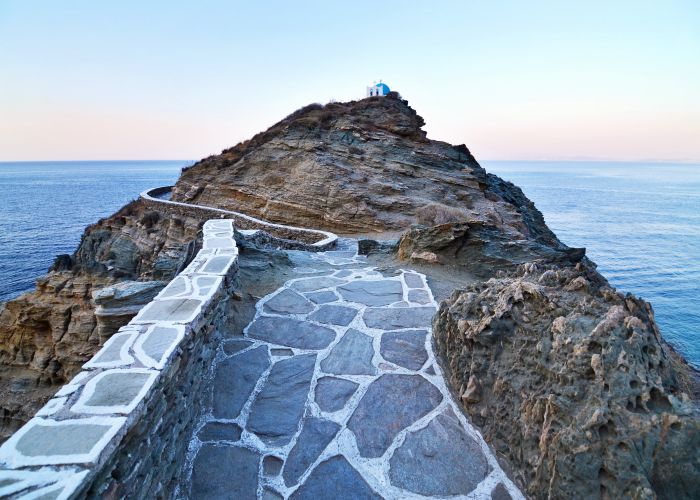
The Church of Seven Martyrs, Sifnos - credits: photo stella/Shutterstock.com
Greece holds a significant spot in early Christian history, particularly within the pages of the New Testament.
The region, known for its ancient culture and influence, served as both a backdrop and catalyst for the spread of Christianity.
Apostle Paul, a central figure in the development of the Christian church, traveled extensively through Greece.
His journeys, which are well-documented in the New Testament, included stops at key cities like Thessalonica, Corinth, and Athens.
- Thessalonica: Founded by Cassander of Macedon in 315 BC, it thrived as a metropolis during the Roman period and later became the second largest and wealthiest city of the Byzantine Empire.
- You can still witness its remnants from the Byzantine churches and the famous Byzantine museum, hosting Byzantine art, you can find there today.
- Corinth:
- Patron Saint: Apostle Paul is recognized as the patron saint of Corinth.
- The Corinthians built an impressive church in Paul's honor, evidencing the deep impression he left on the city and its inhabitants.
- Athens:
- Here, Paul delivered his famous sermon at the Areopagus, indicating the level of intellectual engagement that early Christianity had with Greek thought.
Greece's role is further understood through prophecies and historical texts that shed light on the influence of Ancient Greece on Jewish history, although direct references in the Bible are sparse.
While much of the Greek history interwoven with Judeo-Christian traditions is not contained within the canonical books, some key insights are found in apocryphal texts, like 1 and 2 Maccabees, highlighting the cultural and historical intersection.
In summary, Greece's role in biblical history is both physical, as a setting for apostolic works, and intellectual, through the interplay of Greek culture with emerging Christian doctrine.
Exploring the Biblical Sites in Greece
Greece is not only a country rich in ancient history and art but also an important setting in the narrative of early Christianity.
Several regions and islands of Greece are frequently referenced in the New Testament, where pivotal moments in the spread of the Christian faith took place.
Athens - The Intellectual Center

In Athens, the Apostle Paul engaged with both Epicurean and Stoic Philosophers on Mars Hill, known as the Areopagus.
Here, he delivered a significant speech, recorded in Acts 17, which remains a prominent example of early Christian preaching amidst a background of diverse worldviews and sophisticated art.
Corinth - A City of Commerce and Conversion
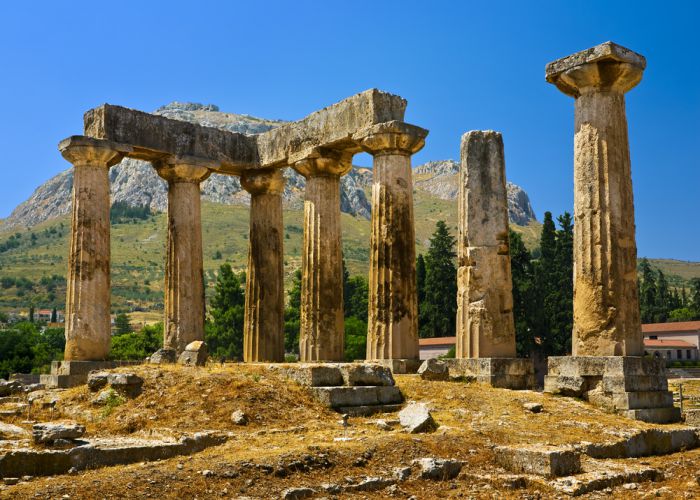
Corinth, in south-central Greece, was a key commercial hub where Paul spent considerable time, establishing one of the early churches.
The city was known for its wealth and the impressive ancient Temple of Apollo. References to Corinth and its community appear extensively throughout Paul's letters in the New Testament.
Philippi - The Gateway to Europe
Located near modern-day Kavala, Philippi was the first city in Macedonia where Paul set foot in Europe during his missionary journey, which is outlined in the Acts of the Apostles.
Historical records highlight the conversion of Lydia, the establishment of the Christian faith in Europe, and the imprisonment of Paul and Silas.
Thessalonica - A Model Christian Community
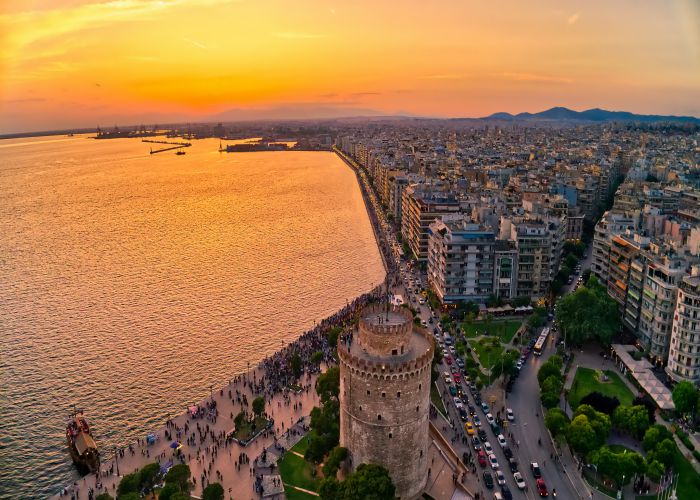
In Thessalonica, Paul and Silas received a warm reception, and a strong Christian community was born. The city's interactions with Paul are detailed by Luke in Acts 17.
Today, visitors can find Christian monuments and relics, such as the Vlatades Monastery, a testament to this city's lasting Christian influence.
Crete - The Island of Titus’s Ministry
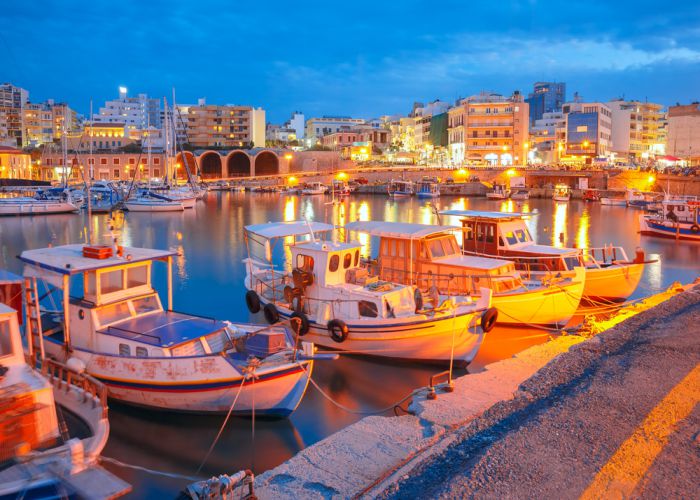
Crete stands out in the Mediterranean for its significance in the New Testament as the location of Titus's ministry, an important figure in the spread of the Christian faith.
The island's long history intertwines with diverse cultural influences and the early church, as mentioned in Acts 17.
Patmos - The Island of Revelation
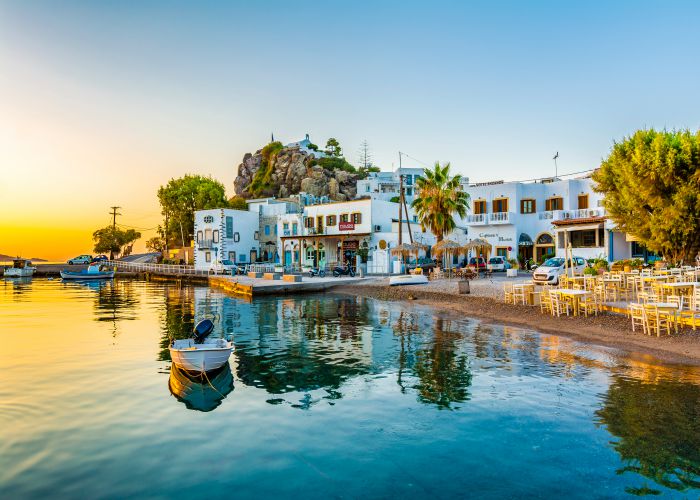
Patmos is renowned within Christianity as the place where the Book of Revelation was penned. Known in biblical times for its seclusion, it provided a retreat for contemplation and writing.
Today, this aspect of the island's history and its profound impact on religion continue to draw visitors interested in early Christianity.
Lesser-Known Biblical Sites in Greece

While Greece is often celebrated for its ancient mythology and landmarks, it equally bears a rich biblical heritage, particularly pertaining to early Christianity.
Many of these sites are nestled in regions less traversed by the standard pilgrimage paths.
In the region of Macedonia, Amphipolis stands out as a notable biblical site. As mentioned in Acts 17:1, it was a stop for the Apostle Paul after his departure from Philippi.
Although now in ruins, the Agora of Amphipolis may still resonate with Paul's evangelizing echoes.
Nearby, Apollonia, another location Paul visited with Silas, is also worth recognizing. While its remains are modest, they underscore the spread of Christianity through these once-thriving Macedonian towns.
Thessaloniki (ancient Thessalonica), Greece's second-largest city, is significant both historically and biblically as a key community that received early Christian teachings.
Paul wrote two epistles to the Thessalonians, and remnants of its biblical past, like the church of Saint Demetrius, can be visited today.
To the south, Veria received Paul warmly, as recorded in Acts 17:10-12. The Bema of Apostle Paul, an open-air altar commemorating his preachings, is a site of reverence for many.
The port city of Neapolis, modern-day Kavala, where Paul first stepped onto European soil, connects pilgrims to the very genesis of Christianity's spread in Europe. Ruins and ancient walls hint at the city’s historical crossroads.
Samothrace, an island in the northern Aegean, is mentioned in Acts 16:11 as a passing point for Paul. It offers a quieter pilgrimage experience amidst its archaeological sites.
Finally, the ancient city of Troas, where Paul had his vision of a man from Macedonia asking for help (Acts 16:8-10), invites visitors to witness the landscape that once inspired the trajectory of the Christian mission.
These sites, alongside the well-trodden paths to more famous biblical locations, enrich the mosaic of biblical history in Greece, allowing travelers to explore the depth of its spiritual past.
The Impact of Greek Culture on Christianity
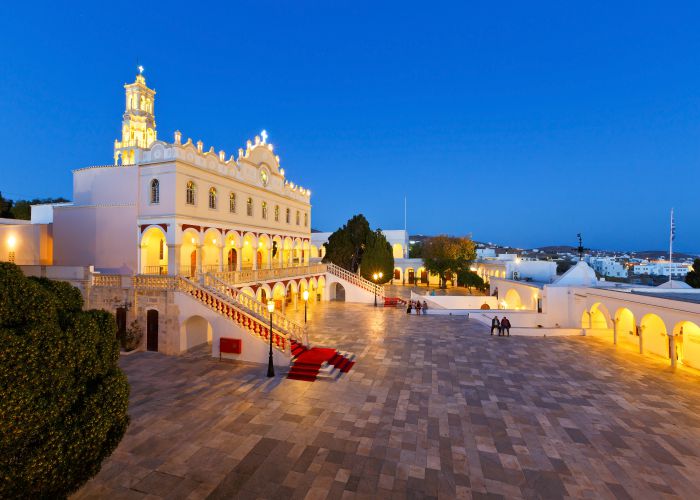
Hellenistic Influence on Christianity
The Hellenistic era, characterized by the spread of Greek culture, significantly shaped early Christianity. The New Testament, notably written in Greek, reflects this influence.
Philosophical ideas originating from Ancient Greece, such as the Logos, were adopted and adapted by early Christian theologians to articulate theological concepts.
Early Christian Churches in Greece
Greece housed some of the first Christian communities. The Apostle Paul's missionary journeys brought him to places like Thessaloniki, where he established a church and later addressed them in the Pauline Epistles.
These epistles are central to Christian doctrine and illustrate how Christianity took root in Greek-speaking regions.
- Thessaloniki: A prominent early church mentioned in the New Testament.
- Corinth: The recipient of two letters from Paul, reflecting early Christian teachings.
Greek Biblical Manuscripts
Greek biblical manuscripts, including the Codex Sinaiticus and Codex Vaticanus, are pivotal as some of the oldest and most complete texts of the Christian Bible.
Greek linguistics and manuscripts preserved essential Christian texts and facilitated their dissemination.
Christian Pilgrimage in Greece
Many pilgrims travel to Greece to visit these sites of biblical significance.
The connection between these ancient locations and biblical events contributes to the religious and historical significance of Greece within Christianity.
List of Key Biblical Sites in Greece:
- Philippi: Where Paul delivered his first sermon in Europe and established the first European church.
- Athens: Where Paul preached to the Athenians about the unknown God, bridging Greek philosophy and Christian theology.
In summary, Greek culture and Christianity are deeply intertwined, with Greece's contribution to Christian theology being profound.
Early churches, Hellenistic philosophical influences, and the Greek language played pivotal roles in shaping and preserving the Christian faith.
Final Thoughts
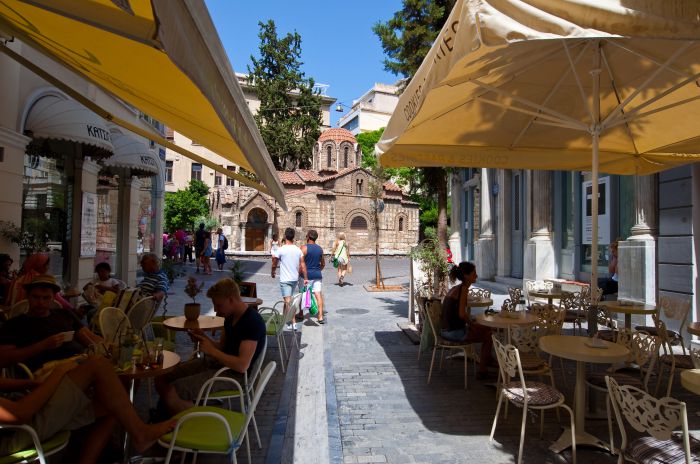
Greece holds a significant position in biblical archaeology and history, often tied to the journeys of the Apostle Paul and the spread of Christian theology.
Cities like Thessaloniki, mentioned in the New Testament, underscore the intersection of Hellenism and early Christianity.
In these environments, the Apostle Paul (or Saint Paul) preached and built the foundations of the Greek Orthodox Church.
The archaeological sites in Greece provide tangible links to the biblical past.
The numerous excavations and studies have illuminated the lives of early Christians and the settings of Paul's ministry.
This confluence of history and theology is pivotal for both scholars and religious pilgrims alike.
In Greece, the enduring legacy of the biblical era is not confined to history books but is evident in the traditions and practices of the Greek Orthodox Church.
The theology established in the early church continues to influence Christian practices and beliefs worldwide.
In summary, the biblical places in Greece offer a profound insight into the roots of the Christian faith.
The blend of cultural, historical, and spiritual exploration these sites offer confirms Greece as an indispensable resource in the study of biblical history and its continued relevance in modern Christian thought.
Frequently Asked Questions
Which biblical sites are included in the Apostle Paul's journeys in Greece?
What are the notable holy places in Greece mentioned in the Bible?
What locations in Greece are linked to stories from the New Testament?
How is Greece referred to in biblical times and under what name?
Can you list significant biblical figures associated with Greek locations?
Which Greek islands are recognized for their religious or spiritual significance?






